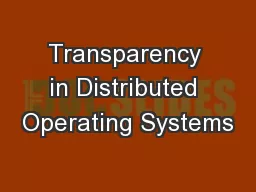PPT-Fiscal Transparency Commitments
Author : mitsue-stanley | Published Date : 2017-09-29
Open Government Partnership FiscalTransparency Cape Town South Africa May 4 2016 GIFT Analysis Data from the first 51 Independent Reporting Mechanism IRM Progress
Presentation Embed Code
Download Presentation
Download Presentation The PPT/PDF document "Fiscal Transparency Commitments" is the property of its rightful owner. Permission is granted to download and print the materials on this website for personal, non-commercial use only, and to display it on your personal computer provided you do not modify the materials and that you retain all copyright notices contained in the materials. By downloading content from our website, you accept the terms of this agreement.
Fiscal Transparency Commitments: Transcript
Download Rules Of Document
"Fiscal Transparency Commitments"The content belongs to its owner. You may download and print it for personal use, without modification, and keep all copyright notices. By downloading, you agree to these terms.
Related Documents














